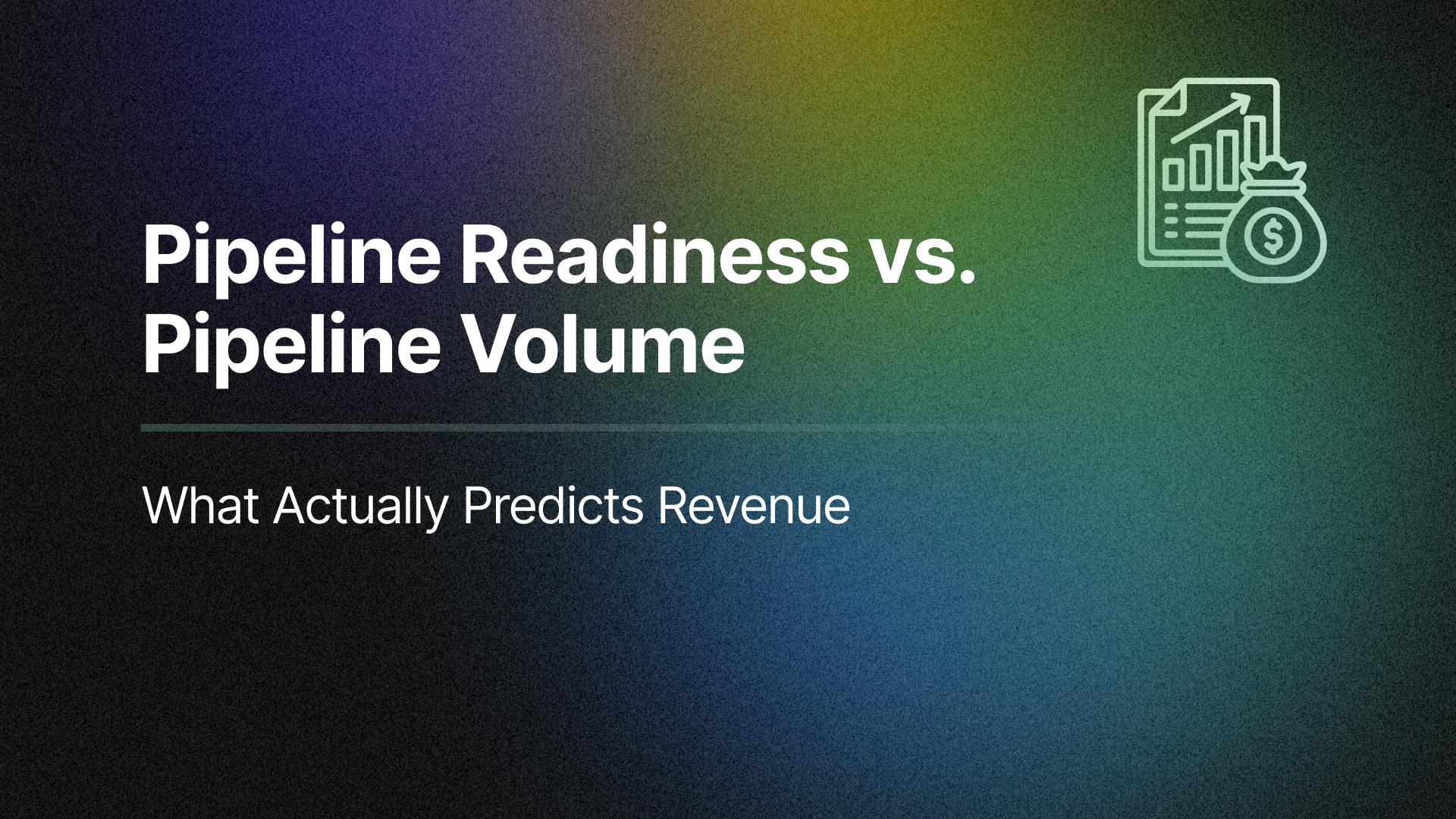With numerous tools, platforms, and strategies at their disposal, marketers must manage complex workflows while staying agile and embracing new innovations. The marketing operations (MOPs) function is critical in synchronizing all the moving parts of a B2B marketing team. By streamlining processes, leveraging data, and utilizing the right technology, marketing operations empower teams to execute campaigns with precision, measure performance effectively, and drive meaningful business outcomes.
A recent Forrester article stated that high-performing companies are significantly investing in marketing operations, recognizing their importance in optimizing workflows and driving efficiency. Businesses that effectively leverage marketing operations are more likely to outperform peers in terms of revenue growth and operational success.
In this guide, we’ll explore the challenges of marketing operations, teams for boosting efficiency, and actionable steps to enhance your marketing efforts. In this ultimate guide, we will explore the challenges of marketing operations, strategies to boost efficiency, and actionable steps to optimize your marketing efforts.
Biggest Challenges in B2B Marketing Operations
Marketing operations (MOPs) teams in B2B companies face unique challenges due to the complexity of managing multiple stakeholders, technology stacks, and data systems. Here are some of the common challenges that B2B marketing operations teams encounter:
Data Management and Integration
One of the most significant challenges in marketing operations is managing and integrating data from multiple sources. B2B companies often rely on a variety of tools, such as CRM systems, marketing automation platforms, and analytics software. Ensuring that data flows seamlessly between these tools is critical for delivering a unified customer experience and accurate reporting. However, data silos, inconsistent data formats, and integration challenges can hinder effective marketing decision-making.
Solution: A unified data strategy and proper data governance protocols can help B2B organizations address these issues. Investing in tools that ensure data synchronization and standardization across platforms is key to overcoming this challenge.
RevSure’s Unified Data Graph consolidates data from various sources, such as CRM systems, marketing automation platforms, and web interactions to create a comprehensive, 360-degree view of each customer and prospect. By connecting disparate data points across the full funnel, it provides a single, integrated source of truth that allows marketing and sales teams to track customer behavior, improve attribution, and align efforts across channels.

Measuring Marketing ROI
B2B marketing operations teams often struggle to measure the return on investment (ROI) of their marketing efforts. Unlike B2C companies, where purchase cycles are short and straightforward, B2B companies have long sales cycles with multiple touchpoints across various stages of the funnel. Attributing marketing success to specific efforts can be complicated when there are numerous teams and stakeholders involved.
Solution: Implementing advanced attribution models and investing in marketing analytics platforms can help MOP teams better track the customer journey and assign value to individual touchpoints. Full-funnel attribution can give a clearer picture of how marketing efforts contribute to overall revenue.
RevSure’s Full Funnel Attribution AI solution is designed to provide a comprehensive, data-driven approach to marketing attribution, allowing B2B companies to accurately assess the impact of their marketing efforts across the entire sales funnel. Unlike traditional attribution models that often focus on either top-of-funnel or bottom-of-funnel metrics, RevSure’s AI solution tracks customer interactions from initial touchpoints through to closed deals, ensuring full visibility into every stage of the buyer journey.
Technology Overload
The proliferation of marketing technologies (MarTech) has led to an overwhelming number of tools being used by marketing teams. Managing multiple platforms for email marketing, CRM, social media, content management, and analytics can create operational inefficiencies and cause team burnout.
Solution: Simplifying the marketing technology stack and ensuring that the platforms integrate well with one another can reduce complexity. Regular audits of the tech stack can help identify tools that are underperforming or redundant.
Aligning with Sales and Other Departments
In a B2B environment, effective marketing operations require close alignment with sales, product, and customer success teams. Misalignment can lead to poor lead handoffs, inconsistent messaging, and ultimately lost opportunities. Ensuring that marketing and sales work in sync is crucial, but often difficult to maintain as both teams have different metrics and goals.
Solution: Regular cross-functional meetings, shared KPIs, and unified communication tools can help bridge the gap between marketing, sales, and other departments. A RevOps framework is increasingly being adopted by organizations to align marketing, sales, and customer success teams under one operational umbrella.
By addressing these challenges, B2B marketing operations teams can optimize processes, improve collaboration, and drive more effective marketing outcomes.
Strategies to Boost Efficiency in Marketing Operations
Addressing these challenges is essential, but optimizing marketing operations for better efficiency goes beyond overcoming obstacles. Here are some proven strategies to ensure that your MOPs team operates at peak performance:
Automate Repetitive Processes
Automation can significantly reduce time spent on repetitive tasks such as lead scoring, email nurturing, and reporting. By implementing marketing automation platforms, B2B companies can not only save time but also improve accuracy and free up their teams to focus on strategic initiatives.
Lead score writebacks are a critical component of marketing operations that significantly enhance efficiency by ensuring real-time data synchronization between marketing automation platforms and CRM systems. This process allows updated lead scores—based on actions like website visits, email engagements, or form submissions—to be automatically pushed back to the CRM. As a result, sales teams have immediate access to current lead intelligence, enabling them to prioritize the most promising leads without manual intervention.
In addition to improving lead prioritization, lead score writebacks allow for better reporting and analysis. Marketing teams can track lead engagement trends over time, refine lead scoring models, and ensure that sales is engaging with the most qualified prospects. This ultimately leads to faster decision-making, improved conversion rates, and greater overall efficiency in the marketing and sales pipeline.
Invest in Advanced Analytics
Data-driven decision-making is at the heart of modern marketing operations. Investing in tools that provide real-time analytics and predictive insights enables teams to make quicker, more informed decisions. RevSure’s Full Funnel Attribution AI solution, for example, offers real-time analytics that can forecast pipeline and optimize marketing campaigns for better ROI.
Foster Collaboration Between Teams
Establishing a culture of collaboration between marketing, sales, and other departments helps eliminate silos and improves overall marketing efficiency. By having aligned goals, shared metrics, and seamless communication, teams can work together more effectively, ensuring that marketing efforts are directly tied to sales outcomes.
Conclusion
Marketing operations are an essential element for businesses looking to scale their marketing efforts and drive meaningful results. By focusing on technology, data, processes, and performance metrics, companies can optimize their marketing strategies and boost operational efficiency. With the right approach to MOPs, businesses can execute campaigns faster, make smarter decisions, and improve overall marketing performance.
Ready to take your marketing operations to the next level? Start by auditing your current setup and explore ways to incorporate automation and data-driven strategies into your workflow.
Related Blogs







